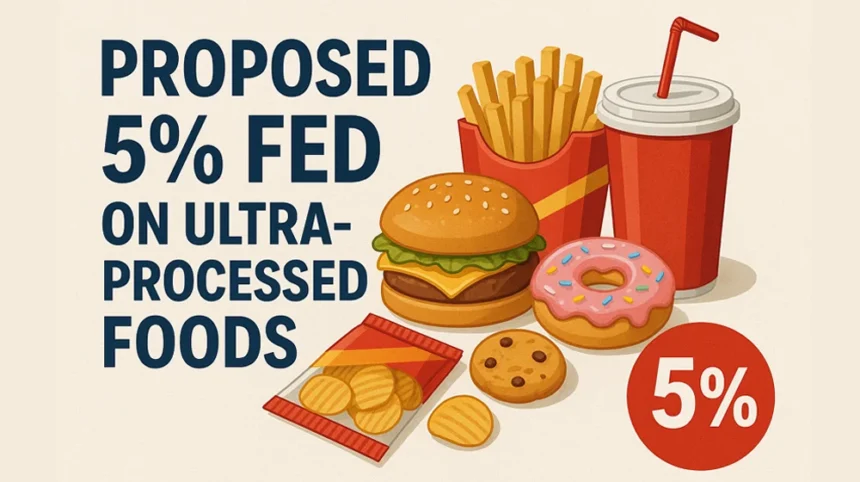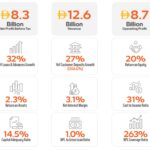As Pakistan prepares to unveil the federal budget for FY 2025–26 on June 10, one of the more consequential measures under consideration is a 5% Federal Excise Duty (FED) on over 50 categories of ultra-processed and packaged foods. This follows the earlier introduction of a Rs.15/kg FED on sugar which is a policy that has already raised concerns across the food industry. Without proper enforcement, regulatory safeguards, or support mechanisms, these measures may end up harming compliant businesses and low-income consumers while inadvertently boosting the very problems they aim to solve.
Disproportionate Burden on Formal Sector
The proposed taxes will be enforced almost exclusively within the formal food sector manufacturers and retailers that are registered, tax-paying, and operate under regulatory oversight. These businesses are already grappling with high utility costs, fluctuating input prices, and weakened consumer demand.
By increasing production and distribution costs through additional taxation, these policies place an even heavier burden on legitimate businesses. The formal sector is then forced to raise prices to remain financially viable, making its products less accessible — particularly to price-sensitive consumers.
Unregulated Informal Sector Gets a Free Pass
In contrast, Pakistan’s large informal sector will remain largely unaffected by the new taxes. Many of these businesses operate outside the tax net and evade food safety regulations. Yet, their cost structures are leaner precisely because they do not bear compliance expenses.
As formal sector prices rise due to taxation, informal producers will be in a stronger position to attract consumers by offering cheaper, untaxed alternatives. This creates a distorted market where tax-compliant businesses are penalized, and unregulated operators are rewarded.
Consumer Shift Toward Lower-Quality, Unsafe Products
Rising prices in the formal market will push low- and middle-income consumers who are already under pressure from record inflation. But these alternatives, often sold by informal operators, typically lack proper labeling, hygiene standards, or nutritional oversight.
Packaged foods produced in the formal sector offer consistent quality, shelf stability, and regulatory transparency. However, if taxes make these products unaffordable, consumers may opt for informal substitutes that pose greater risks to food safety and public health. The outcome could be an unintended increase in the consumption of lower-quality, potentially harmful food items.
Reduced Competitiveness and Investment in the Formal Economy
The processed food sector in Pakistan has shown promise as a potential engine for export growth, particularly to markets in the Middle East and Central Asia. It also supports tens of thousands of formal jobs in manufacturing, logistics, packaging, and retail.
By increasing production costs and reducing market share, new excise duties could undermine the sector’s competitiveness. This discourages investment, reduces tax revenue in the long term, and damages prospects for export-driven industrial growth especially at a time when the economy urgently needs foreign exchange inflows.
Excise Revenue at the Cost of Structural Distortion
There are also questions about the underlying intent of these policies. Without clear reinvestment of excise revenue into health initiatives, infrastructure, or food reformulation support, such taxes risk being viewed not as public health measures, but as revenue-collection tools.
In the absence of a comprehensive nutrition strategy and regulatory framework, blanket taxation becomes a blunt fiscal instrument — one that penalizes formal compliance while offering little in return in terms of long-term public health or consumer welfare.
Better Policy Tools Are Available
If the goal is to reduce diet-related disease and promote healthier eating, a more effective approach would include:
- Incentivizing product reformulation to reduce sugar, salt, and trans fats in packaged foods.
- Introducing mandatory front-of-pack labeling to enable informed consumer choices.
- Strengthening enforcement across the informal sector to level the playing field.
- Investing in public nutrition education so consumers understand the risks of unhealthy consumption.
- Subsidizing healthier alternatives to ensure affordability for lower-income households.
Until such a framework is in place, excise duties risk doing more harm than good.
While the objective of improving public health is important, the mechanism matters. Imposing food taxes in a weak regulatory environment, with limited consumer awareness and a large unregulated informal market, creates an imbalance that could backfire.
Instead of encouraging healthy behavior, these taxes risk shrinking the formal sector, expanding unregulated production, and pushing consumers toward lower-quality products. Long-term health and economic outcomes require structural reform, not isolated fiscal measures that penalize the very actors who play by the rules.







